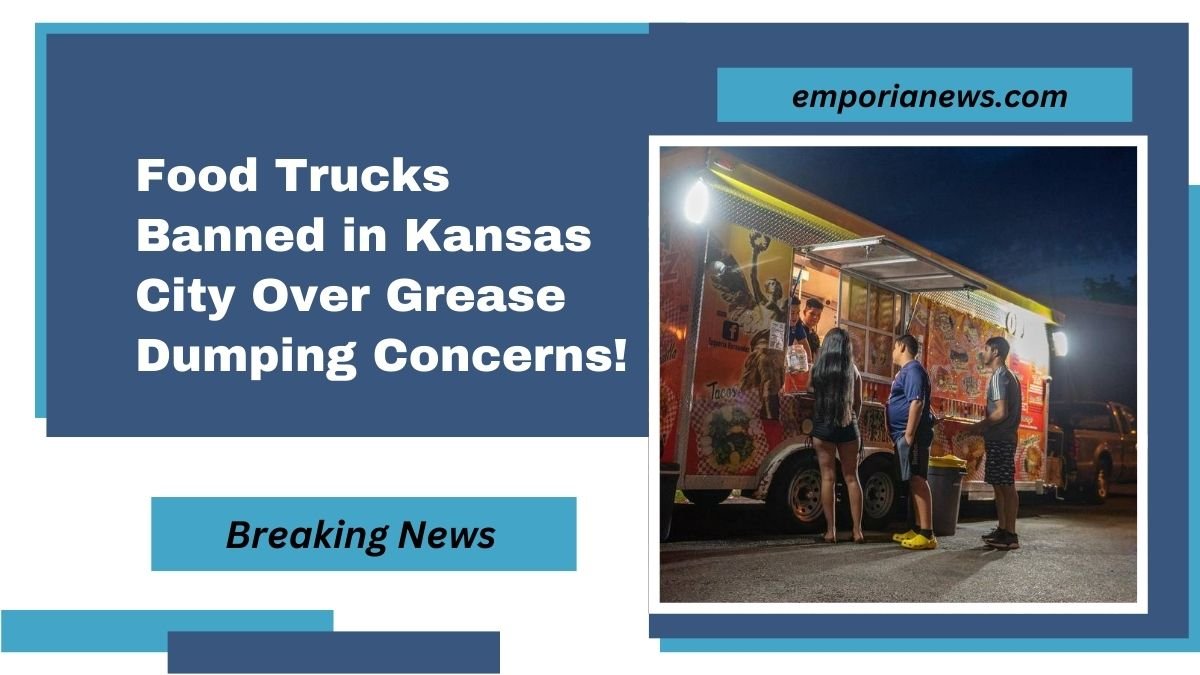Starting Friday, Kansas City has enforced a temporary ban on food trucks in select areas due to excessive grease dumping into the sewer system. The 60-day ban affects South 18th Street from Wilson to Grandview boulevards.
The city’s decision has raised concerns among food truck owners, environmental officials, and residents alike. This article delves into the reasons behind the ban, its implications, and the measures being taken to address the issue.
Why the Ban Was Enforced
Grease Dumping Crisis
The primary issue leading to the ban is the illegal dumping of fats, oils, and grease (FOG) into the city’s sewer system. Jeff Miles, Director of Wyandotte County Environmental Services, highlighted the severe buildup of grease underground near 18th and Central. This buildup risks clogging the sewers, causing overflow and environmental hazards.
Lack of FOG Permits for Food Trucks
Unlike brick-and-mortar restaurants, food trucks in Kansas City are not required to have FOG permits, making it challenging to track and manage their waste disposal practices. The absence of regulations has led to an increase in unregulated dumping.
Affected Areas and Duration
Specific Locations
The ban targets South 18th Street from Wilson to Grandview boulevards. This area has seen the highest concentration of grease-related sewer blockages.
Duration of the Ban
The restriction is set to last for 60 days, giving city officials time to thoroughly clean the affected sewers and assess the situation for long-term solutions.
| Affected Area | Duration | Reason |
|---|---|---|
| South 18th Street (Wilson to Grandview) | 60 Days | Excessive grease dumping |
Food Truck Owners’ Reactions
Challenges for Owners
Food truck owners were notified a week prior to the ban, leaving them scrambling to find alternative locations. Ernesto Parra, a food truck owner, expressed frustration, stating, “I don’t use oil or grease; I use charcoal.” Despite their compliance with waste disposal practices, many owners feel unfairly targeted.
Potential Relocations
Most food truck owners plan to relocate just a few blocks away. However, this may not address the root issue if proper waste management practices are not enforced citywide.
Penalties for Non-Compliance
Trespassing Charges
Food trucks failing to vacate the restricted area in time could face trespassing charges, as warned by city officials.
Hefty Fines
Illegal grease dumping carries a fine of up to $2,500. This penalty aims to deter food truck operators and others from improper waste disposal.
Environmental and Economic Impacts
Sewer Maintenance Costs
Cleaning grease-clogged sewers is a labor-intensive and costly process. The city must allocate resources to restore the sewer system’s functionality, impacting local budgets.
Impact on Small Businesses
The ban poses economic challenges for food truck operators, many of whom rely on high-traffic areas for their livelihood. The restriction may lead to decreased revenue and strained community relations.
Long-Term Solutions
Stricter Regulations
The city is considering implementing FOG permit requirements for food trucks, similar to those required for restaurants. This measure could provide better oversight and reduce future instances of illegal dumping.
Community Awareness Campaigns
Educating food truck operators and the public about proper grease disposal methods could prevent similar issues in the future. Encouraging environmentally responsible practices is essential for maintaining infrastructure and sustainability.
Kansas City’s decision to ban food trucks in select areas highlights the growing challenges of managing waste in urban settings. While the 60-day ban may temporarily alleviate the grease-dumping crisis, long-term solutions are necessary to support both environmental sustainability and the livelihood of food truck operators.
By implementing stricter regulations and promoting responsible practices, the city can strike a balance between economic growth and environmental preservation.
Why are food trucks being banned in Kansas City?
Food trucks are temporarily banned in specific areas due to excessive grease dumping into sewers, which has caused severe blockages.
Which areas are affected by the ban?
The ban applies to South 18th Street from Wilson to Grandview boulevards in Kansas City, Kansas.
How long will the food truck ban last?
The ban is in effect for 60 days, during which the city will clean the affected sewer system.




